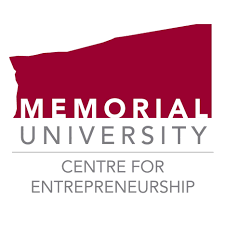Recognizing students’ contributions to regional economies and innovation ecosystems
The contribution of university students – including those who become entrepreneurs and create startups – to regional economies and innovation ecosystems often goes unrecognized, according to a series of studies coordinated by a University of Toronto policy researcher.
 “We don’t understand how important these students are and appreciate the knowledge they get,” says Dr. Shiri Breznitz, PhD, (photo at right) director of research and professor at the Munk School of Global Affairs & Public Policy.
“We don’t understand how important these students are and appreciate the knowledge they get,” says Dr. Shiri Breznitz, PhD, (photo at right) director of research and professor at the Munk School of Global Affairs & Public Policy.
“We tend to see the contributions of students a lot of times in the short term. We don’t look at their long-term impact, the fact that they are actually staying in the region,” she told Research Money.
Policy stakeholders need to acknowledge the important role of how student expenditures affect regionals economies, and how the relationship with regional industrial structures leads to varying economic outcomes, resulting in a different regional innovation system, according to the researchers who produced the nine international studies.
“In the long term, universities contribute to the economic base of their region through firm creation [by] faculty and students,” said one study.
Among the international studies, the research also indicates that government-funded business incubators and accelerators that are external to universities tend to be – with exceptions – more professional and offer more of the specific services crucial to creating and growing a startup, compared with incubators and accelerators within universities that don’t receive government support.
“This is one of the roles that universities are asked to do, but are not supported in doing."
In order to have an organization within the university that provides the right tools and the right mentors, it requires funding,” Breznitz said. “If we want to have a product that is consistently good, we need to support it consistently.”
Ontario government funding for university incubators and accelerators, provided through the Campus Linked Accelerator program, was eliminated by the government in 2019, after the program had funded for five years more than 50 academic-related accelerator programs across the province.
A study by Breznitz and then-Munk School colleague Dr. Qiantao Zhang, PhD (now at Xi’an Jiaotong-Liverpool University in China) of nine accelerators at the University of Toronto found it’s important that the directors of university-based accelerators and incubators be habitual entrepreneurs and that these facilities offer experienced and continuous mentorship and staff guidance for students. These factors positively influence both the growth of employment within startups and growth of their products in terms of market reach.
However, universities typically don’t have the resources to hire habitual entrepreneurs to run on-campus incubators and accelerators.
Another factor positively affecting startup employment and product growth is incubators and accelerators that have a rigorous and expert selection process that identifies startups with the ability to succeed, along with a program that sets specific conditions and a timeline for student entrepreneurs to graduate and get on with establishing and growing a startup, Breznitz said.
The nine international studies overall show that learning by doing, being with people who know what they’re doing, is the “particular kind of knowledge that you need for startups, it’s something that is vital,” she said.
Innovation-rich environment nurtures would-be student entrepreneurs
More and more universities worldwide are establishing accelerators to support student entrepreneurship, the researchers said. Notable examples include the New Venture Challenge at the University of Chicago, StartX at Stanford University, TechArb Student Venture Accelerator at the University of Michigan, and VentureLab at Lund University in Sweden.
The research also revealed the value, in encouraging the entrepreneurial spark in students, of students studying in an environment that includes institutions and resources associated with entrepreneurism and innovation. Such an ecosystem includes universities, external incubators and accelerators, basic and applied research laboratories, tech-transfer agencies, regional public and private associations, training organizations, banks, venture capital firms, legal and accounting firms, levels of self-employment, patents awarded to inventors in the region, and other resources and indicators associated with highly entrepreneurial regions.
“Students coming from more entrepreneurial regions have a higher tendency to establish firms,” said the researchers.
For regional innovation systems, the university is part of the innovation system, while other regional organizations play a significant role in generating highly innovative firms, according to the research. The collaboration of universities and other regional organizations provides practical education that results in a direct economic contribution, according to the research.
Students studying in the “periphery,” such as in an isolated region or a rural community that lacks resources supporting entrepreneurship and innovation, don’t have the same advantages compared with students studying, for example, in urban centres like Toronto, Breznitz said.
“It’s very rare that somebody who comes from not knowing anything, without any support, to be able to do a startup,” said Breznitz who taught at the Georgia Institute of Technology. “It’s almost like taking someone from Paolo Alto (California) who grew up in Paola Alto around engineers and startups, versus somebody who grew up in the middle of Georgia and has never seen a startup in their life.”
Support to encourage entrepreneurship in peripheral regions is vital
Because of the lack of resources in peripheral regions, it is important for government and academic institutions to try and fill that gap if they want to encourage student entrepreneurs and new startups in the region, Breznitz said.
Memorial University of Newfoundland in St. John’s, for example, does a very good job at providing services to entrepreneurs and startups, even startups from outside the university, she said.
 Memorial University deliberately promotes a culture of entrepreneurialism. The services and programs it offers include:
Memorial University deliberately promotes a culture of entrepreneurialism. The services and programs it offers include:
- Lab2Market (for research teams to move research towards commercialization)
- Genesis innovation hub and business startup centre (supports startups from the ideation stage to scaling their business)
- Memorial Centre for Entrepreneurship (provides guidance, inspiration, resources and a community for entrepreneurs at Memorial)
- Centre for Social Enterprise (offers student-focused experiential learning opportunities and community engagement around creating positive societal impact through social enterprise and social innovation)
- Navigate (a centre located at Memorial’s Grenfell Campus that supports entrepreneurs in the pre-start-up phase).
In order to sustain regional economic development, high-level innovation and production processes need to be maintained in the region, according to one of the nine international studies.
“Students are an obvious source of such activity,” said the study. “This is because the learning and knowledge-creation process is accomplished through a set of institutions that promote knowledge creation and learning by the local firms.”
The research also pointed to the value of students who potentially want to become entrepreneurs leaving their home region to study elsewhere, including internationally.
“You need a diverse kind of knowledge. For entrepreneurs, this is a huge thing,” Breznitz said. Studying elsewhere not only provides students with life experience, it gives them different kinds of skills, exposure to learning in a different culture, and learning a different approach to business, she said.
A peripheral region can be a favourable place for a university graduate with limited or no work experience to start up a new venture – provided the graduate has strong ties to the region, according to the international research.
This speaks in favour of entrepreneurship policy in the periphery focusing on retaining graduates with entrepreneurial aspirations in their home region and, in addition, exploring the possibilities for enhancing network relationships for graduate entrepreneurs from another home region, the researchers said.
Breznitz said the research also shows the importance of retaining international students, so their contributions benefit that region. Canada in general does a better job of retaining students than the U.S. because international students can apply for permanent residence after two years, she noted. In the U.S., it’s very difficult to become a permanent resident and takes much longer.
Value of entrepreneurial education offered by universities
The research found that entrepreneurial education offered by universities has a positive impact on entrepreneurship in general, and more particularly on student entrepreneurship. Entrepreneurship courses at universities impact startup firm creation in general and students’ firms in particular.
However, the research also showed that general entrepreneurial courses offered by universities are less important when it comes to students creating high-tech firms than the specialized services offered by incubators, accelerators, and public or private regional organizations outside the university.
Universities’ general entrepreneurial courses typically teach students about what entrepreneurship is or who tends to become an entrepreneur, Breznitz said. “Most of them are just about entrepreneurship, they’re not necessarily teaching you how to become an entrepreneur.”
For the creation of high-technology firms, entrepreneurship education from universities is not enough, and should be paired with other organizations within an entrepreneurship ecosystem, according to the research.
“Especially if you talk about high tech [startups] you need the courses and programs that actually have mentors and investors that are specialized to that technological niche,” Breznitz said. Often, accelerators and incubators outside of university have resources that were established by venture capitalists or by government that provides these resources and wants to see positive results, she added.
Another factor in creating successful startups based on research by young academic entrepreneurs is how a university handles intellectual property rights and technology transfer.
In the U.S., laws such as the Bayh-Doyle Act give universities ownership of federally funded inventions. But in Canada, it’s up to each university to decide how to handle IP arising from academic research.
Breznitz and colleagues are now examining how different universities in Canada deal with IP rights and how that impacts their knowledge transfer. After completing interviews with 32 universities, Breznitz said a surprising and disappointing finding is that that many universities’ choice of which IP model to follow isn’t based on understanding IP or about the results they want to see in terms of startups and IP licenses.
A lot of it is pressure from either faculty or industry [to choose a particular IP model],” she said. “Some of the universities make decisions not to hold IP just because they don’t have the capacity. They don’t have the funding to sponsor a proper tech transfer office, which is very expensive.”
Lack of support for tech transfer and creating new startups limits how universities can contribute to regional economies, Breznitz said. “If you want to see startups come out of this, you need to provide certain services.”
R$
Events For Leaders in
Science, Tech, Innovation, and Policy
Discuss and learn from those in the know at our virtual and in-person events.
See Upcoming Events
You have 0 free articles remaining.
Don't miss out - start your free trial today.
Start your FREE trial Already a member? Log in
By using this website, you agree to our use of cookies. We use cookies to provide you with a great experience and to help our website run effectively in accordance with our Privacy Policy and Terms of Service.




